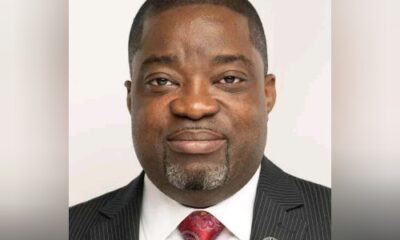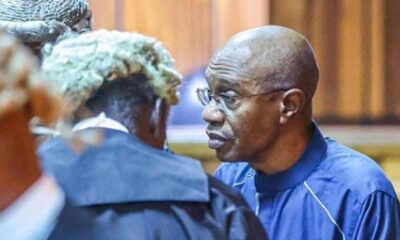The Middle Belt Forum, MBF, said it has unequivocally rejected in totality the proposed establishment of Ruga settlements in the region by the federal government.
The forum noted that the policy seeks to exclusively benefit a particular ethnic group against the rest of Nigerians.
Dr lsuwa Dogo, National Publicity Secretary of MBF said in a statement, “The attention of the Middle Belt Forum (MBF) has been drawn to the planned establishment of Ruga settlements for Fulani herdsmen all over the 36 states of the federation, including the FCT by the President Muhamamdu Buhari-led Federal Government.
“The plan to establish these so-called Ruga settlements was first unveiled by the Permanent Secretary, Federal Ministry of Agriculture and Rural Development, Alhaji Muhammadu Umar. In a media interview in Abuja, Umar was quoted to have disclosed that the Ruga Settlement idea was the initiative of the National Economic Council (NEC) that was presented under the National Livestock Transformation Plan (NLTP).”
The forum explained that according to the Permanent Secretary, work is ongoing in 12 pilot states, with six Ruga settlements expected to be established in each of the pilot states.
“The final plan is to ensure that same is replicated in all the 36 states of the Federation, including the FCT. Going by the Permanent Secretary’s disclosure, no less than 222 of such settlements shall be built all over the country when fully completed,” the statement explained.
Accordingly to the forum, “An umbrella body of all socio-cultural groups in Middle Belt Region hereby unequivocally rejects in totality the proposed establishment of Ruga settlements in the Middle Belt, as it is a policy that seeks to exclusively benefit a particular ethnic group against the rest of Nigerians.
“In this line, we hereby declare our total support and solidarity for Governors Samuel Ortom of Benue and Arc. Darius Dickson Ishaku of Taraba state who have developed the rare courage of raising their voices against unfair, unjust and oppressive policies of the Federal Government.
“On the other hand, we wish to denounce in totality the fraudulent and mischievous group that calls itself the Concerned Middle Belt Citizens Forum (CMBCF).
“This group, if it ever exists, has made itself readily available to be procured by detractors of the Middle Belt Region to insult our leaders and oppose any struggle aimed at emancipating the people of the Middle Belt,” the statement explained.
The statement observed that the local Fulani are living peacefully in their Ruga settlements scattered across the various communities in the Middle Belt and other parts of the country.
MBF added, “They have been going about their normal lives and returning to their settlements at the end of the day. As a matter of fact, these local Fulani are never homeless for government to tinker with the idea of building exclusive settlements for them.
“From available reports, the Federal Government has not just proposed but has gone ahead to commence the construction of Ruga settlements, mostly in Middle Belt states of Benue, Plateau, Nasarawa, Kaduna and Taraba, among others. Specifically in Taraba and Benue, the Federal Government has gone ahead to commence construction of these Ruga settlements against the wish of these state governments, amidst widespread protests by the people and in spite of existing laws that prohibit open grazing and provides for ranching.
“Going by the insistence of the Federal Government to forcefully establish these Ruga settlements, it suggests to us that the government is on a mission to settle criminal terrorist herdsmen that are behind the incessant invasions of our communities and displacing our people from their ancestral lands, thereby precipitating grave humanitarian crisis situation in the affected areas.”
Middle Belt Forum lamented, “Despite these incessant invasions of our communities, often times on a genocidal scale by marauding Fulani herdsmen, the Federal Government has never deemed it fit to apprehend, prosecute or convict any of the aggressors. Ironically, it is always the victims who try to defend their communities that are always hounded into detention by government agents.
“Sadly, all we ever heard from President Buhari is that these invaders are from neighbouring countries. The Miyetti Allah group has said the same. Governor Nasir Ahmad el-Rufai of Kaduna state has not only corroborated this fact that the invaders are from foreign countries, but also has confirmed paying compensation to them.
“Contrary to claims by the Federal Government that the Ruga settlement is aimed at addressing the incessant clashes between Fulani herdsmen and farmers, our Forum insists that the plan is nothing but a ploy to import criminal Fulani from within and neighbouring countries to settle them in our communities in order to change demography for political, social and economic advantage in pursuit of the much-talk about ‘Fulanisation’ agenda of the present administration.
“If at all there is need for government to use tax payers’ money to build settlements for any particular group, it is for those homeless, starving and helpless citizens of our country who, for no fault of theirs, have been internally displaced from their ancestral lands by Boko Haram insurgency in the North-east, armed banditry in the North-west and Fulani herdsmen’s invasions in the Middle Belt and the South.
“The deplorable conditions of IDPs all over the country are pathetic and quite unfortunate. Any responsible and responsive government would rather focus its energies on ameliorating the suffering of these categories of people and not engage in the vain pursuit of ethnic chauvinistic agenda aimed at enthroning the supremacy of one group over others as an official state policy.”


 BIG STORY3 days ago
BIG STORY3 days ago
 BIG STORY1 day ago
BIG STORY1 day ago
 BIG STORY1 day ago
BIG STORY1 day ago
 BIG STORY4 days ago
BIG STORY4 days ago
 BIG STORY3 days ago
BIG STORY3 days ago
 BIG STORY2 days ago
BIG STORY2 days ago
 BIG STORY3 days ago
BIG STORY3 days ago
 BIG STORY1 day ago
BIG STORY1 day ago





































